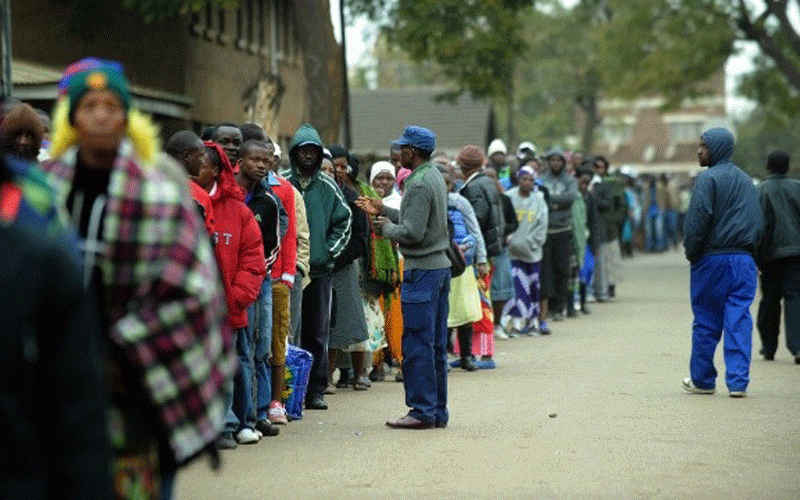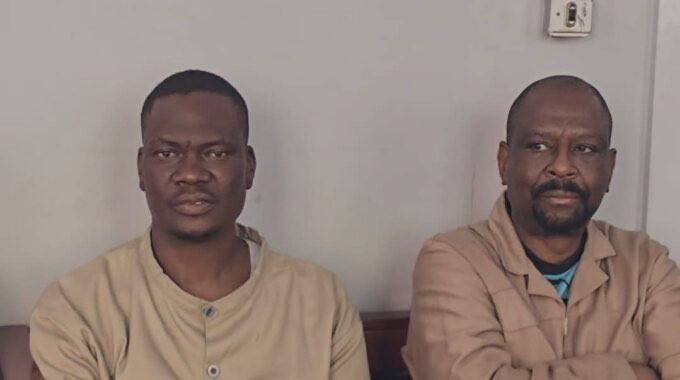
Today I woke up with the rising sun, savouring each caressing ray of light on my skin, awed at the amazing powers of Mother Nature to command the seasons. Across the paddock, wild nature echoed my spirit – the bouncy exuberant chirping of birds darting around the technicolour explosion of tender msasa foliage heralds the dawn of yet another spring. Another year, another spring, right on time.
I must have dozed a little bit, because when I opened my eyes, the sun seemed higher, warmer. And for some reason, my mind began to drift to that other season bearing inexorably upon us, the season of every five years and it is the Election Season 2023.
Thinking and writing about elections is not easy, especially to those of a Zimbabwean persuasion. It fills you with a certain ambivalence; a frisson of excitement co-exists with a flutter of anxiety; hope wrestles despair and a sense of unbridled opportunity tags alongside dreadful foreboding. This should, of course, be expected as most of the elections held after 2000 have been controversial in one way or the other.
But to begin to understand these emotions, and understand the Zimbabwe situation, we need to begin at the beginning and ask: what is at stake in 2023 and what should be the outcome of Election Season 2023?
To me, the answer is clear. Just as Mother Nature renews herself each season, so should the nation renew itself each election season. Election Season 2023 can therefore not be different, it provides the opportunity and platform for a national strategic renewal. It provides for generational succession management.
Strategic renewal is an influential concept in organisational learning. According to Agarwal & Helfat (2009:282), “strategic renewal includes the process, content and outcomes of refreshment or replacement of attributes of an organisation that have the potential to substantially affect its long-term prospects”.
So, if we stretch it a bit and consider Zimbabwe to be a big complex organisation then we should expect the normal succession procedures and activities to take place capped at the Election Season where the procedures and activities will be validated. Therefore, the question “what is at stake in Election Season 2023?” is very important and relevant to the validation process.
As my contribution to the debate, I offer my views in a series entitled ‘Towards 2023: what is at stake’. This is a big topic to which I can’t do justice in one go. This first instalment is meant to open the debate that I believe is necessary if we are to have consensus on critical issues of national significance. Below, I give a broad outline of what I consider to be the major dimensions of national strategic renewal. Then in subsequent series, I will get deeper into analysing the process, content and possible outcome scenarios.
- Mavhunga puts DeMbare into Chibuku quarterfinals
- Bulls to charge into Zimbabwe gold stocks
- Ndiraya concerned as goals dry up
- ED heads for Marange
Keep Reading
People’s aspirations
The validation process is about reflecting on, and expressing our aspirations, individually and collectively. This entails determining how to strengthen the bonds that bind us together as a nation; how to create resonant national ethos; defining our national interests and our overarching collective vision of the future. A national vision should resonate well and broadly with the majority of people, and should not be an elitist wish-list or a convenient slogan.
Environment: physical, social space
Human beings survive within a physical and social milieu. This physical and social ecosystem supports life on earth; and is the basis of survival, wealth creation and development. Land and land-based resources are the primary sources of wealth, and we have those in abundance. Strategies need to be evolved for sustainable exploitation and stewardship of these physical resources; suitable mechanisms be put in place for equitable distribution, regeneration and reclamation of denuded environments. Election time provides the platform for reflecting on and validating sound ideas for achieving this aspiration.
Furthermore, creating and safeguarding social space is critical for development. It is crucial to renew the spaces through which new ideas can be generated, refined and adopted; where new relationships find expression and collaborative action is possible. Digital spaces are increasingly influential for reflection and sharing; and Election Season 2023 provides an opportunity to maximise this potential for innovation.
Relations
Humans are relational beings. It is not always possible to provide for everything that we need ourselves to survive at individual, group, institutional and national levels. Therefore we need networks of mutual exchange. Internally, society functions because of these webs and networks of mutually reciprocative relations. This is also known as social capital, a glue that is vital to the attainment of the national vision.
Internationally, no nation is an island unto itself. When a nation is isolated, it would be exposed to adverse conditions leading to untold suffering of its people. So it is evident that we need good diplomatic relations with other countries for security, international development and international trade purposes. Diplomatic relations are absolutely vital, but under what conditions; under what and whose terms? With the war in Ukraine the international outlook brings a new dimension to be appropriately considered for 2023.
Leadership
By far the most important dimension of any strategic renewal is leadership. Ultimately, the leader determines the strategic direction of a nation, appoints the team that drives the process and takes the credit or fall-out from their stewardship of the nation. Through skillful leadership the process, content and outcomes of development is facilitated; the aspirations of the ordinary citizen are championed; and the attainment of meaningful societal goals are galvanised and organised to become a collective action that leaves no one behind. One would want to believe that for 2023, validation would not just be based on past performance but also on prospects for the future. In fact we should analyse past performance with a view to determine the prospects of the future.
At the centre of it all is the economy. The economy is the number one leadership challenge in Zimbabwe. This is also dependent on international relations; and the leadership challenge on the international dimension is to determine where to position Zimbabwe in a world order in constant flux.
Ideas
Rulers rule through ideas. Ideas run the nation and influence what things are prioritised, how they are implemented, what counts as success, and how that success is measured. Ideas are the building blocks of blueprints, policies, laws, strategies, manifestos, SOPs etc. To use a computer analogy, ideas are the software that runs the hardware. Mostly, this software resides in the Civil Service but the elections are to select the hardware which the software should be compatible with.
Incompatibility between software and hardware cannot be resolved through pick and choose for patronage purposes. Leadership should professionalise Civil Service for ideas to flow from inception to harvest. The success of government programmes hinges on the level of competence of the Civil Service.
While elections are not about the Civil Service, it is the ability of the elected leadership to separate the Civil Servant from Political Party patronage and make Civil Service a profession that would determine the success or failure of the elected leadership. That ability to disentangle the Civil Service from partisan politics should therefore, be one of the dimensions to be considered as we race towards 2023.
Organisation
Managing human activities at any scale requires a suitable structure. This usually takes the form of organisational structures. In particular, how public institutions are structured, managed and administered determines to a large extent how the government would perform. The vast government bureaucracy is key in implementing government policies. To a large degree, Zimbabwe is generally known for its excellent ideas and blueprints, but unfortunately not always matched by implementation.
In large measure, this has to do with certain deficiencies in structuring work processes, unintuitive incentive systems and lax or non-existent monitoring and evaluation within the bureaucratic structures. That laxity can be traced to the issues with human capital, which should be developed in a focused manner. For maximum benefit, Zimbabwe should start from a well-trained and oriented Civil Service. The current scenario characterised by civil service top management either not well-trained for government work, largely partisan or outright unprofessional has led to poor implementation of otherwise excellent policies and blueprints.
Action
When all is said and done, action is what causes situations to change. It is what causes production of goods and services. Action allows people to create value through engagement, farming, mining, playing sports etc. The power of ideas, organisation, leadership, relationships etc is reflected in actions. The outcomes of action are a function of competence, discipline and resourcefulness. Election time is a good period to project future action. In other words, elections are about appraising the past (politically-sanctioned) actions to see how they have contributed to the wellbeing of the electorate; evaluating how those proffering themselves for the leadership challenge are likely to carry the national aspirations to the next level.
Towards 2023 provides a platform for national debate on whether those aspiring to lead the nation have the character, attitude, deportment, ideas and the will to enact our national aspirations to the next higher level.
Mangwiroto is a lecturer at the University of Zimbabwe, Department of Community and Social Development, Faculty of Social and Behavioural Sciences..











